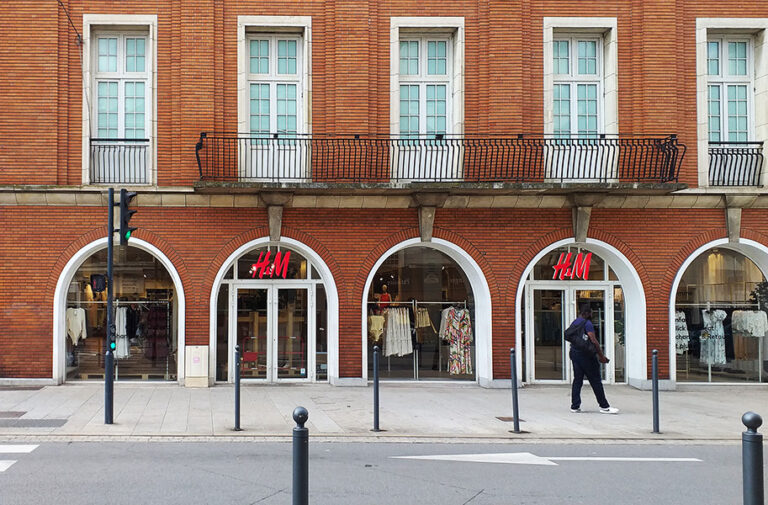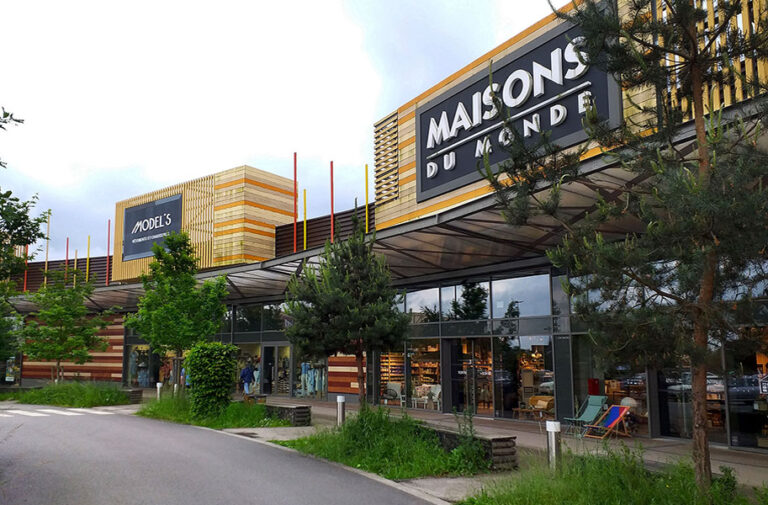Shopping centres are essential focal points in the urban landscape. The main objective is to attract a constant flow of customers. To achieve this, they often opt for a strategic location and focus on a plurality of services. This type of asset attracts both user-operators and investors, with more than 1/3 coming from international sources.
From small neighborhood shops to large stores, mini-markets and restaurants, local businesses offer a variety of assets. For these properties, location is of paramount importance in the evaluation of the walls and the leasehold rights. They arouse keen interest among investors looking for diversification.
The retail park is a group of open-air shops, with a common parking lot giving it a structure similar to that of a small town. Its architecture is constantly evolving, tending towards a modernization that includes the integration of green spaces. They target the same market of users and investors as shopping centers often included in the same portfolio.
Outlet Centers offer unsold items at reduced prices, often at least 30% off. Once located in industrial areas, these centers are increasingly popping up near high-potential tourist sites. This high-yield niche market offers significant growth potential for investors.
Shopping Centers...!
Shopping centres are essential focal points in the urban landscape. The main objective is to attract a constant flow of customers while standing out from the competition To achieve these objectives, shopping centres often opt for a city centre location and focus on high-end services.
They offer a variety of shops and entertainment activities, including animations, restaurants and cinemas. This type of asset attracts both end users and investors, with more than a third of the latter coming from international markets. However, it is worth noting a downward trend in transactions, mainly due to a limited supply on the market, especially for large-scale operations.
What are the attributes that characterize the “Shopping Center” asset ?
Originating from department stores, shopping centers are undergoing a marked evolution, adapting to a varied range of products. Their history dates back to the 1970s, when these complexes were first established on the outskirts of large cities around large food stores in the Paris region. In the 1980s, with the rise of the tertiary sector, they spread to business districts, such as La Défense.
Over time, they also conquered the city centers of metropolises in the 2000s, reflecting a trend towards the revitalization of shopping malls, like the development of a commercial offer in train stations and airports. The concept of shopping center has also evolved, inspired by the Retail Street model.
In these new configurations, the traditional food locomotive gives way to the presence of large national and international brands, which play a major role in attracting customers. We thus find the large ready-to-wear franchises, personal equipment brands such as FNAC, or even those specializing in household items such as IKEA.
What are investors' expectations ?
Over the last decade, investors’ requirements have undergone a significant evolution regarding this category of assets, which was still poorly understood in the early 2000s and 2010s, with the exception of specialized real estate companies. Aside from geographical considerations, investors are now paying increasing attention to fundamental economic aspects, which reveal the overall health of the commercial area studied.
These fundamental elements include the size of the catchment area and the level of competition, the footfall rate, the overall occupancy rate, the dominant sector of activity, the quality of the national or international brands present, and, above all, the conversion rate, measured by the turnover generated. However, in times of crisis, even when the basic economic indicators remain solid, the geographical criterion remains predominant, because the question of the reconversion of commercial sites can then arise with increased acuity.
What are the main criteria for evaluating shopping centers ?
To value a shopping center, various methods are used, mainly discounted cash flow (DCF) and capitalization. These methods take into account the differences between observed rents and market rental values (MLV), with a specific analysis of vacant premises. In addition, the determination of portfolio premiums is also considered, as is the sensitivity study including rates of return, discount rates and occupancy rates.
Location is a crucial element in the valuation of a shopping center. In addition, the variety and quality of services offered by the shopping center, such as digitalization, concierge services and parking facilities, play an increasingly important role in its valuation, especially when they contribute to offering customers an improved shopping experience.
Our asset managers are here to help you!
Cut out unnecessary middlemen...while protecting your assets...!
- See also !







